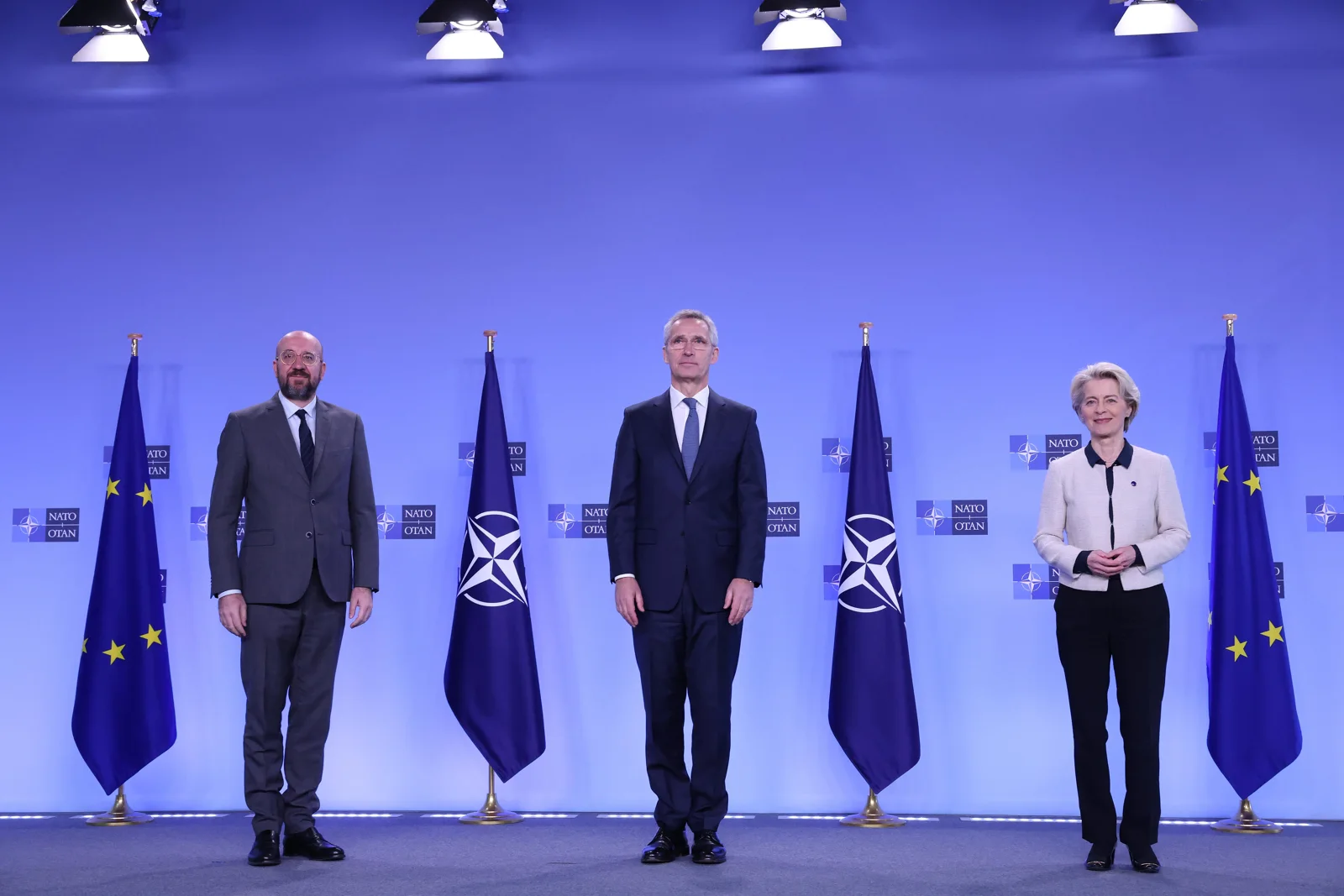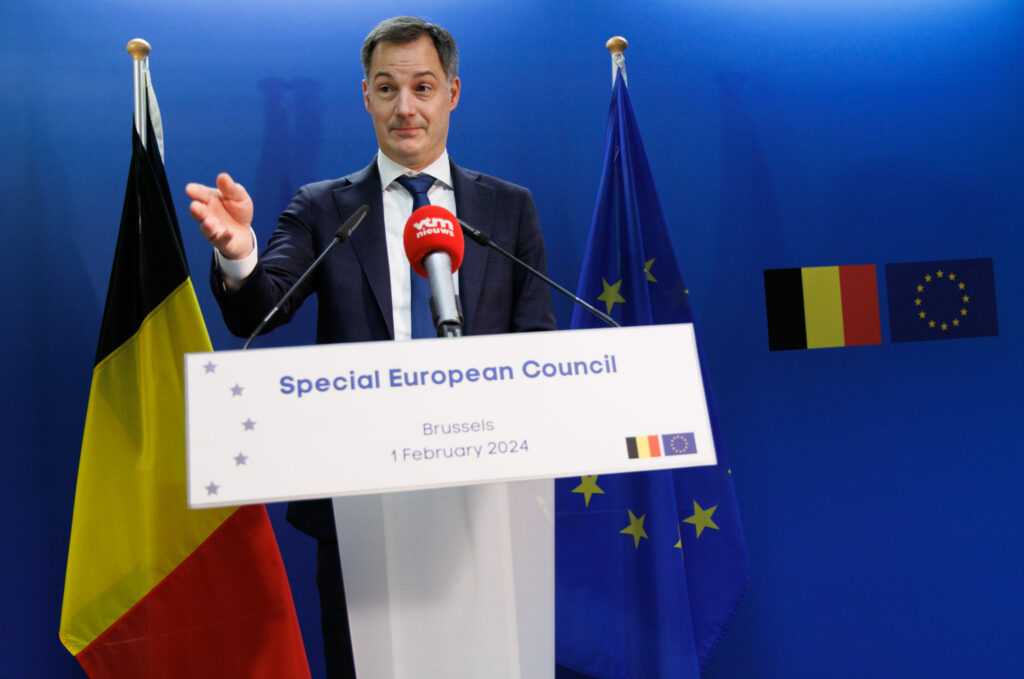Belgian Prime Minister De Croo (Open VLD) has endorsed the idea of European defence bonds to bolster the continent’s security.
In an interview with Reuters, the Prime Minister said EU defence bonds were a "sound idea" and a good way of "speeding things up" regarding EU defence spending in general.
De Croo is not the first EU leader to back bonds in the context of the war in Ukraine and increasingly unreliable support from the US. Estonian Prime Minister Kaja Kallas, French President Emmanuel Macron, EU Council President Charles Michel and Belgian MEP Guy Verhofstadt (Open VLD - Renew) have all endorsed a similar approach.
Bonds issued by the EU and not individual Member States are viewed with suspicion by several countries including Germany and the Netherlands. However, they feature prominently in the EU's Next Generation fund, and they were activated in response to the Covid-19 pandemic and for the EU-wide purchase of gas.
De Croo acknowledges that defence bonds would require "stable funding", which would in turn require "some clear policy choices".
"At some point, you need to be able to sustain it and you can't sustain it by borrowing all the time."
Taking stock
Defence is front and centre for Europe since Russia's invasion of Ukraine in February 2022, but there is an added tone of urgency since Donald Trump's recent comments about US support for its NATO allies.
European leaders expressed alarm at the NATO sceptic and US presidential candidate's statement, who told supporters at a rally last week that he would cease to defend NATO countries that are behind on their payments if he were re-elected. He even encouraged Russia to attack these countries.
NATO Secretary General Jens Stoltenberg has since announced that 18 out of 31 NATO countries will spend 2% of GDP on defence by 2024 – the required minimum for members of the alliance.

EU Council President Charles Michel, NATO Secretary-General Jens Stoltenberg and EU Commission President Ursula Von Der Leyen. Credit: Belga
In an interview on Thursday, European Commission President Ursula Von Der Leyen told The Financial Times that Europe needed to "spend more, spend better and spend European" when it came to defence. She explained the EU's role was to promote industry and encourage weapons production at home rather than importing them from the US or elsewhere.
Separately, European Commissioner for the Internal Market Thierry Breton has said that the next Commission will launch a €100 billion defence bond. The Commission will announce an investment programme and industrial strategy for defence at the end of February.
Where does Belgium stand?
Belgium is the second-lowest spender in the NATO alliance, overtaking only Luxembourg and spending 1.2% of its GDP on defence. De Croo says spending will reach 2% "in the next 1o years".
The spending debate is inextricable from discourse on providing military support for Ukraine. While the EU approved €50 billion in general aid for the country at a Summit in February, Ukraine's military effort is facing an ammunition shortage on the front line.
Belgium confirmed it would provide €611 million in military aid to Ukraine throughout 2024. A large part of this will contribute to the modernisation of Ukraine's airforces. Belgium is training Ukrainian pilots to use F-16 fighter jets, which the country has also supplied.

